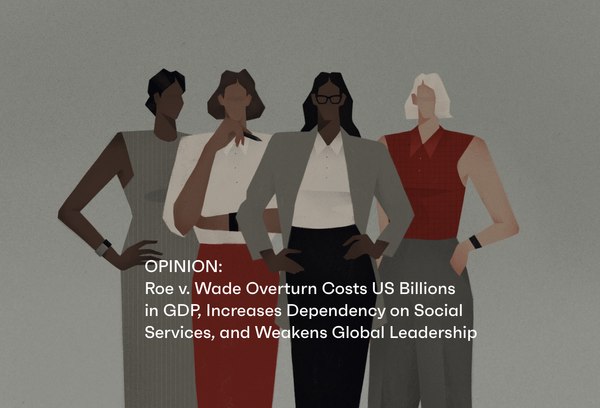Employers who discuss the efficacy of fertility benefits typically only consider their female employees.
This discourse may seem justifiable, but it devalues the experiences of men also experiencing infertility. Studies show women and men experience infertility at similar rates: 11% and 9%, respectively.
Yet many commentators still perceive infertility as a woman's burden to bear — a misconception with damaging implications for all genders. It's high time we discuss fertility issues frankly, acknowledging that all employees can experience infertility. Doing so includes the men affected by the physical and mental toll of infertility challenges.
There’s a bright side to this reality check: Dispelling the myth that men suffer less from infertility is the first step to providing your employees with truly inclusive benefits.
Men experience infertility and its attendant anxieties, too
The incidence rate of anxiety and depression among men experiencing infertility is difficult to quantify, partly because most fertility research focuses on women's experiences. We know that nearly half of women experiencing infertility (40%) also suffer from symptoms of anxiety and depression, and we can assume a comparable proportion of men share these symptoms.
Although mental struggles related to infertility manifest similarly for men and women, society often perceives these struggles differently. The UT Southwestern Medical Center put it best:
“These situations can be particularly challenging for men, some of whom have been taught there is a relationship between fertility and masculinity. (There isn’t.) Women’s infertility is often viewed as a more tragic and emotional situation, and therefore it’s more likely to be discussed and supported among friends and family.”
When employers provide female employees with fertility benefits and educational resources — but neglect to do the same for men — they reinforce this troubling dogma.
Employees without infertility struggles can still suffer
Earlier this year, the World Health Organization (WHO) found that one in six heterosexual couples struggle with fertility — making infertility a more common diagnosis than Type 2 diabetes. This high incidence rate suggests that many men who haven’t struggled with infertility still suffer from its mental and physical side effects.
Research shows that assistive reproductive technologies (ART) like in vitro fertilization (IVF) significantly improve mental health outcomes for both partners. In a study of 70 women undergoing IVF due to their partner's infertility, anxiety and depression levels decreased substantially following the oocytes harvesting stage. This data proves that the stressful and often lengthy fertility journey affects both partners.
As you craft family-building coverage, remember that your offerings will impact the lives of your employees and their families. Male partners walk side-by-side with their partners in the fertility journey, regardless of who experiences infertility.
Another consideration: many men seeking IVF and ART treatments do so to start a family with their same-sex partner. Today, IVF is the most popular family-building method for same-sex male couples. However, many LGBTQ+ men lack the resources to start their family-building journey, either because it's too costly out-of-pocket or because clinics in their geographic area lack the proper expertise. One in five LGBTQ+ individuals say they've avoided treatment for fear of discrimination.
It’s time we — as employers — bridge these disparities in care.
Employers can bridge the infertility coverage gap
Research into the psychological and social impacts of male infertility found that men prefer verbal, clinician-provided infertility information over generalized mental health resources. Employers can fill this identified need by prioritizing family-building programs offering high-quality clinicians with experience treating and identifying male infertility. This treatment approach can alleviate symptoms like stress, anxiety and depression, which negatively affect an employee's quality of life.
Additionally, inclusive family-building benefits address gaps in care for LGBTQ+ men seeking to start a family. A leading provider like Stork Club walks you through designing your benefits plan, ensuring your employees receive the highest quality of care. For example, the Stork Club's Centers of Excellence (COE) demonstrate an unparalleled standard of care for diverse populations. We're passionate about providing employees with the right clinician at the right place and time.
Moreover, providing comprehensive fertility benefits demonstrates your organization’s acknowledgment and support of men's physical challenges regarding fertility — and encourages them to seek additional care without fear of judgment or financial burden. Tackling the societal stigma associated with male health and fertility is a challenging but necessary exercise for employers committed to improving their work culture, employee happiness, productivity, and retention.
When we support all genders in their family-building journey, we help employees feel their healthiest and happiest while building a stronger, more inclusive workplace. As you work to break down barriers and dispel myths in your workplace, you'll pave the way for a stigma-free family-building journey for all.
At Stork Club, access to critical reproductive healthcare is a basic human right — for all genders. Join us on the mission to make reproductive care available for all. Are you interested in adding Stork Club to your team? Sign up to view a demo.




